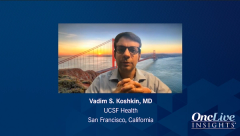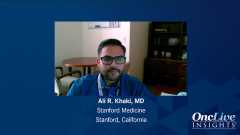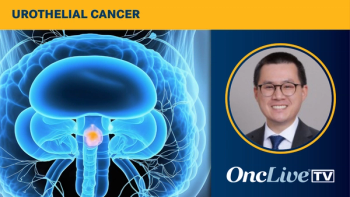
Optimizing Therapy for Patients with Advanced Bladder Cancer
Ali R. Khaki, MD, comments on how to treat patients with advanced bladder cancer based on data demonstrated by the EV-103 study of enfortumab vedotin.
Episodes in this series
Ali R. Khaki, MD: Enfortumab vedotin is a very active drug that can give good, long, and durable responses. One priority is to find ways we can make sure we optimize patients’ symptoms so they can continue to be on the drug and benefit from this active agent. We talked about that, the dose reductions, decreasing the frequency, and the supportive medications, like duloxetine or gabapentin, which are all important to make sure the medicine is tolerable. I always tell my patients that the goal of all our therapies is to help them live longer and feel better. If they’re suffering from the toxicity of our medications, that’s going against the quality-of-life goal. That’s very important to all of us and our patients. It’s very important to make sure we’re able to get comfortable with these very active agents and use them in a way that is safe and can preserve quality of life.
I didn’t mention much about cutaneous toxicity, which was also a significant consideration. One other thing we’ve been very successful at here at Stanford [University] with enfortumab vedotin is making sure we have a good team of collaborating physicians who can help us with various toxicities as they come about. We’re eternally grateful to our dermatologic colleagues for helping manage the skin toxicities of enfortumab vedotin and other agents that we use to take care of our patients. With the patient whom I presented, we were fortunate that her dermatology was very responsive in helping co-manage her skin toxicity. Before it even got to a grade 2 toxicity, they were giving her a strong topical steroid and even escalated to a short course of systemic steroids to make sure the toxicity was well managed before it became a bigger problem.
The 3 big take-home points if you’re treating these patients is becoming comfortable with dose reductions and treatment breaks, understanding supportive care medications that can help support patients through the toxicities of these medications, and working with a great team of doctors who can help optimize the management for all of our patients.
Transcript edited for clarity.







































